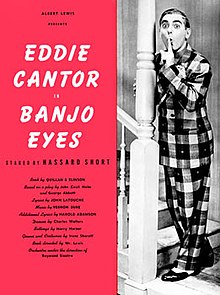
James Francis Durante was an American comedian, actor, singer, vaudevillian, and pianist. His distinctive gravelly speech, Lower East Side accent, comic language-butchery, jazz-influenced songs, and prominent nose helped make him one of America's most familiar and popular personalities of the 1920s through the 1970s. He often referred to his nose as the schnozzola, and the word became his nickname.

1776 is a musical with music and lyrics by Sherman Edwards and a book by Peter Stone. The show is based on the events leading up to the signing of the Declaration of Independence, telling a story of the efforts of John Adams to persuade his colleagues to vote for American independence and to sign the document.
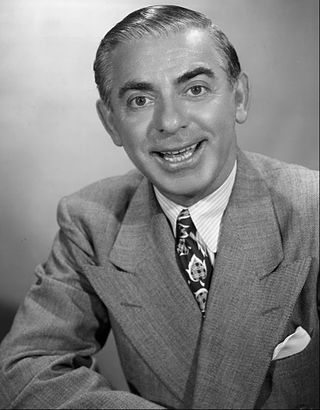
Eddie Cantor was an American comedian, actor, dancer, singer, songwriter, film producer, screenwriter and author. Familiar to Broadway, radio, movie, and early television audiences, this "Apostle of Pep" was regarded almost as a family member by millions because his top-rated radio shows revealed intimate stories and amusing anecdotes about his wife Ida and five daughters. Some of his hits include "Makin' Whoopee", "Ida ", "If You Knew Susie", "Ma! He's Making Eyes at Me", “Mandy”, "My Baby Just Cares for Me”, "Margie", and "How Ya Gonna Keep 'em Down on the Farm ?" He also wrote a few songs, including "Merrily We Roll Along", the Merrie Melodies Warner Bros. cartoon theme.
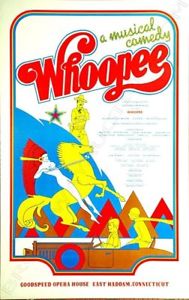
Whoopee! is a 1928 musical comedy with a book based on Owen Davis's play, The Nervous Wreck. The musical libretto was written by William Anthony McGuire, with music by Walter Donaldson and lyrics by Gus Kahn. The musical premiered on Broadway in 1928, starring Eddie Cantor, and introduced the hit song "Love Me or Leave Me", sung by Ruth Etting.
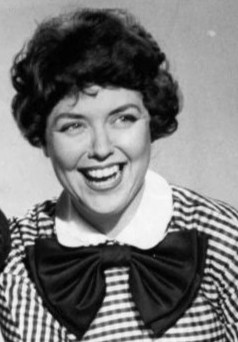
Dorothy Loudon was an American actress and singer. She won the Tony Award for Best Lead Actress in a Musical in 1977 for her performance as Miss Hannigan in Annie. Loudon was also nominated for Tony Awards for her lead performances in the musicals The Fig Leaves Are Falling and Ballroom, as well as a Golden Globe award for her appearances on The Garry Moore Show.

Anything Goes is a musical with music and lyrics by Cole Porter. The original book was a collaborative effort by Guy Bolton and P. G. Wodehouse, heavily revised by the team of Howard Lindsay and Russel Crouse. The story concerns madcap antics aboard an ocean liner bound from New York to London. Billy Crocker is a stowaway in love with heiress Hope Harcourt, who is engaged to Lord Evelyn Oakleigh. Nightclub singer Reno Sweeney and Public Enemy Number 13, "Moonface" Martin, aid Billy in his quest to win Hope. The musical introduced such songs as "Anything Goes", "You're the Top", and "I Get a Kick Out of You."
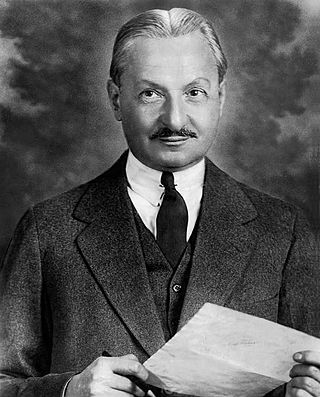
Florenz Edward Ziegfeld Jr. was an American Broadway impresario, notable for his series of theatrical revues, the Ziegfeld Follies (1907–1931), inspired by the Folies Bergère of Paris. He also produced the musical Show Boat. He was known as the "glorifier of the American girl". Ziegfeld is a member of the American Theater Hall of Fame.

Virginia Mayo was an American actress and dancer. She was in a series of comedy films with Danny Kaye and was Warner Brothers' biggest box-office money-maker in the late 1940s. She also co-starred in the 1946 Oscar-winning movie The Best Years of Our Lives and White Heat (1949).

Jumbo is a musical produced by Billy Rose, with music and lyrics by Richard Rodgers and Lorenz Hart and book by Ben Hecht and Charles MacArthur.
John Treville Latouche was a lyricist and bookwriter in American musical theater.

By Jeeves, originally Jeeves, is a musical with music by Andrew Lloyd Webber, and lyrics and book by Alan Ayckbourn. It is based on the series of novels and short stories by P. G. Wodehouse that centre around the character of Bertie Wooster and his loyal valet, Jeeves.

Half a Sixpence is a 1963 musical comedy based on the 1905 novel Kipps by H. G. Wells, with music and lyrics by David Heneker and a book by Beverley Cross. It was written as a vehicle for British pop star Tommy Steele.
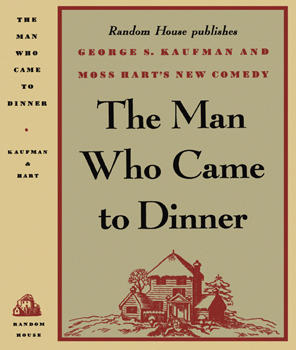
The Man Who Came to Dinner is a comedy play by George S. Kaufman and Moss Hart. It debuted on October 16, 1939, at the Music Box Theatre in New York City, where it ran until 1941, closing after 739 performances. It then enjoyed a number of New York and London revivals. The first London production was staged at The Savoy Theatre starring Robert Morley and Coral Browne. In 1990, Browne stated in a televised biographical interview, broadcast on UK Channel 4, that she bought the rights to the play, borrowing money from her dentist to do so. When she died, her will revealed that she had received royalties for all future productions and adaptations.

Lennon is a musical with music and lyrics by John Lennon and book by Don Scardino, who also directed its premiere. The musical is about the life of Lennon and is notable for Scardino's choice to be almost exclusively based on Lennon's own words and to focus on Lennon's solo career, with no songs from the Lennon–McCartney catalogue.
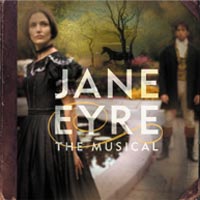
Jane Eyre is a musical drama with music and lyrics by composer-lyricist Paul Gordon and a book by John Caird, based on the 1847 novel by Charlotte Brontë. The musical premiered on Broadway in 2000.
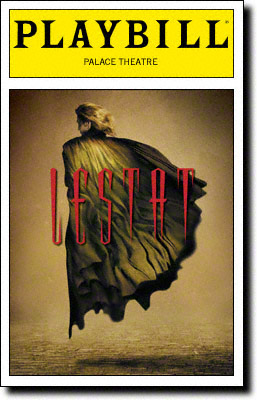
Lestat is a Broadway musical inspired by Anne Rice's The Vampire Chronicles. The score is by Elton John and Bernie Taupin, with the book by Linda Woolverton. The musical had a brief run on Broadway in 2006.
Here's Where I Belong is a musical with a book by Alex Gordon and Terrence McNally, lyrics by Alfred Uhry, and music by Robert Waldman. The musical closed after one performance on Broadway.
Pleasures and Palaces is a musical with a book by Frank Loesser and Sam Spewack and music and lyrics by Loesser. It is based on Spewack's flop 1961 play Once There Was a Russian and takes its title from the opening lyrics of the 1823 song "Home, Sweet Home": "Mid pleasures and palaces though we may roam, Be it ever so humble, there's no place like home."
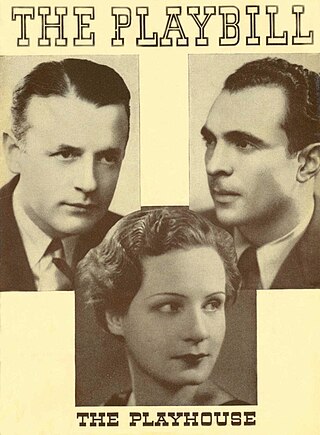
Three Men on a Horse is a three-act farce co-authored by John Cecil Holm and George Abbott. The comedy focuses on a man who discovers he has a talent for choosing the winning horse in a race as long as he never places a bet himself. Originally titled Hobby Horse by John Cecil Holm, Three Men On A Horse was a property controlled and produced by Alex Yokel, who reached out to Warner Bros. for financial assistance; Warners agreed to provide financing on the condition Yokel find someone to doctor the script and direct the Broadway production. George Abbott, the director, who had since 1932 directed and produced each of his Broadway productions, immediately saw the potential and rewrote the script and agreed to direct if he received co-author credit and split the author's royalties with Holm. Abbott wrote a third act, resulting in a new three-act play titled Three Men on a Horse.
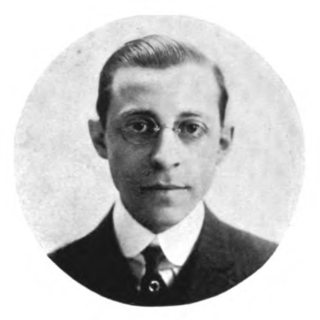
David Stamper was an American songwriter of the Tin Pan Alley and vaudeville eras, a contributor to twenty-one editions of the Ziegfeld Follies, writer for the Fox Film Corporation, and composer of more than one thousand songs, in spite of never learning to read or write traditional music notation. He may have written "Shine On Harvest Moon", a claim supported by vaudeville performer and writer Eddie Cantor. He was also a charter member of the American Society of Composers, Authors and Publishers or ASCAP.
